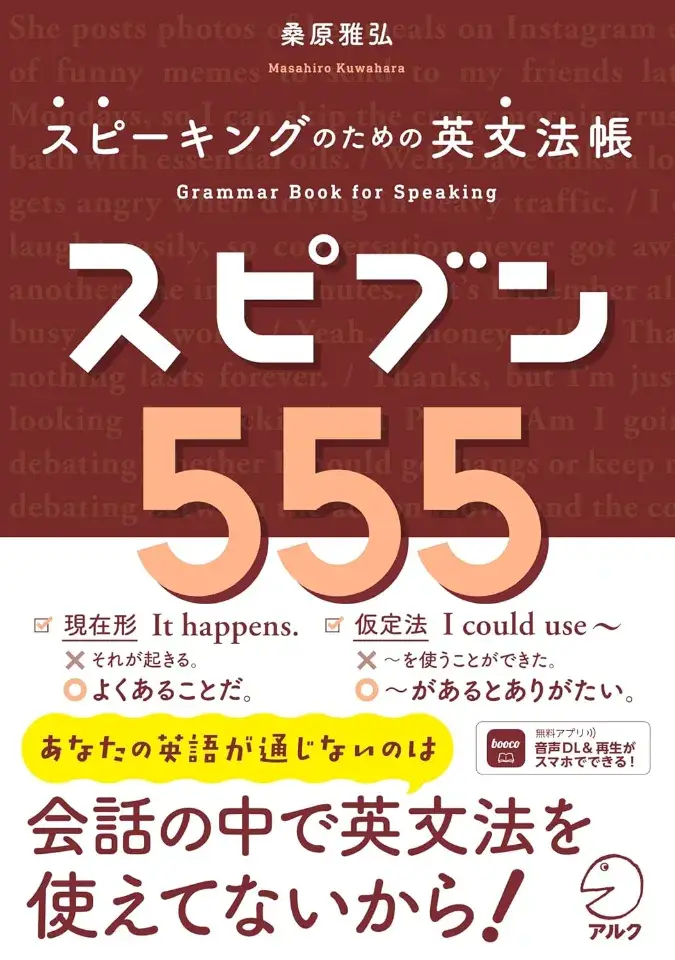
今、ヒュッゲやフォルケホイスコーレで注目を集める国、デンマーク。ピーター タクソ-イェンセン駐日デンマーク王国大使に、デンマークとはどんな国か、デンマークでの英語教育、日本人がデンマークに行くべき理由などについてお伺いしました。インタビューの英語音声も交えて、全3回でお届けします。
デンマーク基本情報
まずは、デンマークがどんな国かを簡単に紹介します。
デンマークは北欧諸国の中で最も南に位置し、北はノルウェー、東はスウェーデン、南はドイツと国境を接しています。総面積は約43,000平方キロメートル。これは北海道のおよそ半分の大きさです。人口は約580万人で、世界で最も小さな国の一つといわれますが、その文化は豊かで多彩です。
デンマークといえば、デンマークデザインの家具や建築、文学作品を思い浮かべる人が多いのではないでしょうか。誰もが子供の頃に読んだであろう『人魚姫』『みにくいアヒルの子』『マッチ売りの少女』などのアンデルセン童話は、デンマーク出身のハンス・クリスチャン・アンデルセンによって書かれたものです。また、子供に限らず大人にも大人気のLEGO(レゴ)も、デンマークで誕生しました。実は私たち日本人も、子供の頃からデンマーク文化に触れて育っているんですね。

デンマーク人のDNAに組み込まれる「ヒュッゲ」
それでは早速、ピーター タクソ-イェンセン駐日デンマーク王国大使に、デンマークがどんな国なのか、「世界幸福度ランキング」で常に上位に位置する理由、昨今日本でもよく耳にする「ヒュッゲ」について聞いてみましょう。インタビュー音声の一部を掲載しているので、実際の大使の語りをぜひ聞いてみてください。デンマーク語訛りはほとんどなく、分かりやすい英語で話されています。※音声には周囲の雑音が入っています。ご了承ください。

――デンマークはどんな国ですか?日本人に知ってもらいたいデンマークの魅力とはなんでしょうか。
(How would you describe Denmark? Is there something in particular you would like Japanese people to know about your country?)
「Happy, cosy country.(幸せで居心地の良い国)」と言えるでしょう。デンマークは現在、「世界幸福度ランキング」の2位に位置しています。日本の皆さんも耳にしたことがあるかもしれませんが、私たちには「hygge(ヒュッゲ)※」という概念があります。これはデンマーク人のDNAに組み込まれているもので、簡単に言うと「ライフワークバランスをうまく取る」ということです。家族と一緒に過ごす時間を作るなど、こういったさまざまなことが「幸せ」につながっているのです。ですからデンマークは、家族や友人と過ごす時間を多く持てる「幸せな小さな国」と言えるでしょう。
I would say, ”Happy, cosy country.” And happy is because we are, I think, ranked as the second happiest country in the world, at the moment. And ”cosy” because we have this concept of – what do you call it? – ”hygge” which many Japanese have heard about, which is basically something which is part of every Dane’s DNA. It’s a question of having a good life-work balance. It’s a question of creating space where you can be with your family and many other things that I think all contribute to the first part, which is happiness. So I would say we are a small happy country with a lot of time to not just work all the time but also be able to live life and be with your family and friends...
※ヒュッゲ hygge:デンマーク語で「勇気、慰め、喜びを与えること」を意味し、満足な感情がもたらされ、居心地がよく、快適で陽気な気分であることを表現する言葉。コリンズ英語辞典の2016年新語流行語大賞(イギリス版)第2位に選ばれた。
――最近、日本でも「ヒュッゲ」という言葉をよく耳にするようになりました。
(Recently, the term ”hygge” has been heard more often in Japan.)
ヒュッゲは今や世界中の多くの国で、より幸せに生きられる素晴らしい概念だと理解され定着しています。国や文化によってさまざまに解釈されており、この概念に価値があることを皆さんが知っているからこそ、もっと深く掘り下げて理解しようとするのだと思います。ヒュッゲの全てを説明できるわけではありませんが、デンマークにこの概念があることは、本当に特別なことだと感じます。
Hygge is something that many other cultures because there's an understanding that this is actually something nice and a way of life that actually can make you happier. And it's being interpreted in many, many different ways by different cultures and people, but it's something where I think people understand that there's some value in this concept and so therefore want to dig deeper into this and try to understand it better. I'm not sure I can explain everything about it, but I can just say this is really something that is special in Denmark – that we have this concept.
――ヒュッゲ以外にも、国民の幸福度に影響していることはあるのでしょうか。
(Apart from hygge, what else has had an impact on the well-being of the population?)
北欧の社会モデルと言っていいと思いますが、私たちは福祉制度をうまく構築してきました。デンマークでは医療費は原則として税金でまかなわれるので、病気になったときにお金の心配をする必要がありません。教育の無償化も確立しており、公立校にかかる費用は国と自治体が全額負担しています。小学1年から大学まで、学費を払うことなく通うことができます。また、大学生は国から補助金として月に約10万円を受け取れるので、お金の心配をすることなく勉学に集中できます。自己決定が重視されるデンマークでは、日本よりも早く親元を離れて自立する人が多い印象です。
このように、健康や教育など人生の基盤となることは国が面倒を見てくれるので、それらの心配をする必要がなく、家族や友人との時間を心から楽しんで暮らせる国だと言えるでしょう。
I would say the Nordic social model. We have built our welfare system well. In Denmark, medical costs are, in principle, covered by taxation, so people do not have to worry about money when they fall ill. Free education is also well established, with the state and local authorities paying all expenses for public schools. Students can attend from first grade to university without having to pay school fees. In addition, university students receive approximately 100,000 yen per month in subsidies from the state, allowing them to concentrate on their studies without worrying about money. In Denmark, where self-determination is emphasized, the impression is that many people leave their parents earlier than in Japan and become independent.
In this way, the state takes care of the foundations of life, such as health and education, so there is no need to worry about these things, and the country is a place where people can truly enjoy their time with family and friends.
――子供たちの教育で重視していることはなんでしょうか?
(What do you emphasize when it comes to Danish children's education?)
子供たちが物事に疑問を持ち、先生から教えてもらって「そうなんだ」で終わるのではなく、「なぜそうなのか」を議論するように教育を行っています。その結果、デンマークでは自分の意見を主張できる人がたくさん育ち、民主的プロセスに参加しようと意識する人も多く、デンマークの国や地方自治、全ての選挙で投票率は75~80%を維持しています。国民は投票することが自分たちの権利の一部だと、強く感じているようです。
We educate children to question things and to discuss why things are the way they are rather than just being told things by their teachers and ending up with “I see.” As a result, Denmark has produced many people who can assert their opinions and are conscious of participating in the democratic process, and the voting rate in Denmark's national and local government and in all elections remains between 75 to 80 percent. People seem to feel strongly that voting is part of their rights.

――デンマークと日本には、何か共通点はあると思いますか?
(Do you see any similarities between Denmark and Japan?)
実は日本のさまざまな地を周っていると、デンマークの良い評判をよく聞くことがあって、それはなぜだろうと考えることがあります。もちろん、さまざまな理由があるかと思いますが、私は日本とデンマークには共通の基盤があるからだと感じるのです。文化は大きく異なりますが、私たちは同じ美徳を持っています。デンマークには「ヤンテの掟※」と呼ばれるものがあって、これは個人の成果よりも集団の調和を大切にするものです。日本にも「和」の概念がありますよね。それと似たようなものです。
I wonder a little bit how it can be that, when I go around Japan, that Denmark actually has a good name. Of course, there could be different reasons for this, but I think there is a sort of a common ground, a common basis that one should not ever underestimate. I think, even though the culture is extremely different, we still have some of the same virtues. We have something called Jante Law, the Law of Jante, which is basically something where there is a focus on not focusing on your individual accomplishments but more focus about how the group is doing. I think the same was, I think, the case here in Japan to some extent. I think there's a concept like "wa" or something like that.
※ヤンテの掟 Law of Jante:デンマークの作家アクセル・サンデモーセが書いた『逃亡者はおのが轍を横切るEn flyktning krysser sitt spor』(1933)に出てくる戒法。「自分が他人より優れていると思ってはいけない」「他人より物知りだと思ってはいけない」など、個人の優越を戒め平等と協調性を重んじるための10の条文でできている。
建築やデザインに対するアプローチも似ていると思います。日本とデンマークの住宅は見た目こそ異なりますが、それらに対する感謝の気持ちがあります。その感謝の気持ちは、両国のデザインに浸透する「simplicity(飾り気のないこと、自然や静寂の美しさ)」から来ていると、私は考えているのです。また、世界で最も古い君主制(天皇制)は日本だと思いますが、デンマークの人々も自分たちこそ最長の君主制を誇っていると自負しています。このように、日本とデンマークには考え方や国の体制など、人間の基盤となる共通点があるのです。さらに、民主主義、人権の尊重、国際秩序を守りたいという願いなど、国レベルで同じ価値観を共有していることも、大切な共通点だと言えます。
The approach to architecture and design is also similar. Japanese and Danish houses may look different, but there is an appreciation for them. I believe this appreciation comes from the simplicity that permeates the design of homes in both countries. I also believe that Japan has the oldest monarchy in the world (the Emperor System), and the Danish people are also proud that they have one of the oldest monarchies. Thus, Japan and Denmark share some common human foundations, such as their ways of thinking and their national systems. Another important commonality is that they share the same values at the national level, such as democracy, respect for human rights and a desire to preserve the international order.

第2回は、「英語能力指数」5位を誇るデンマークの英語教育に迫ります。お楽しみに!
※第2、3回の記事はこちらからご覧いただけます。(2023/5/26更新)
デンマークに興味を持った人はこちらもチェック
取材:知夏七未 構成・文:古川(編集部) 大使写真:安宅雅美(編集部)
boocoで読める!アルクの新刊、続々登場
語学アプリ「booco」なら、アルクのベストセラー書籍200タイトル以上が、学習し放題!
「キクタン」などアルクの人気書籍800冊以上が音声対応。「読む」に対応した書籍では、本文と音声をスマホで手軽に利用できるほか、一部の書籍では、学習定着をサポートするクイズ機能で日々の復習や力試しも可能です。さらに、Plusプランに加入すれば200冊以上の書籍が学習し放題に!
boocoの「読む」機能では、次のような使い方ができます。
① 学習したいページを見ながら音声を再生できる
② 文字サイズや画面の明るさを調整できる
③ 書籍内検索ができる
※ これらの機能には一部の書籍が対応しています。

▼「booco」の無料ダウンロードはこちらから









